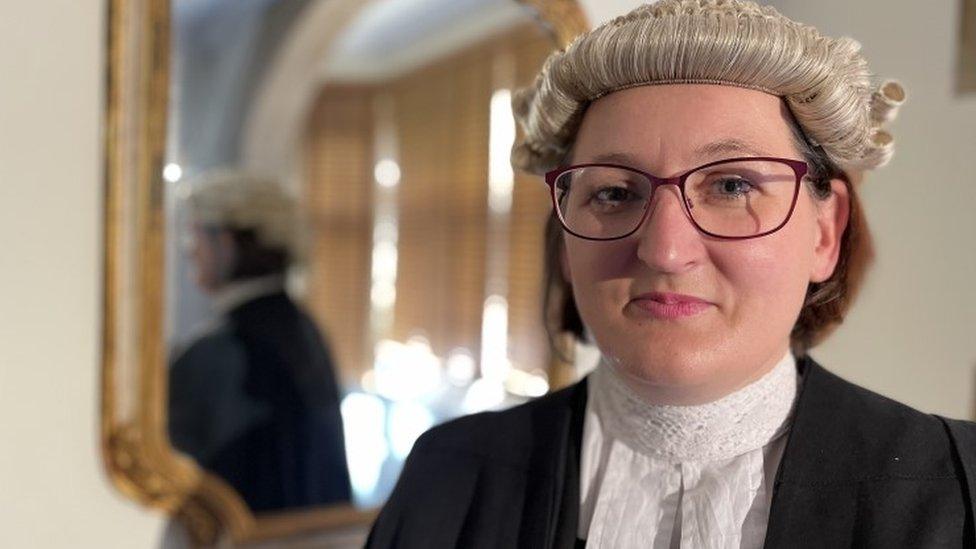CPS brings case against judges bailing defendants
- Published
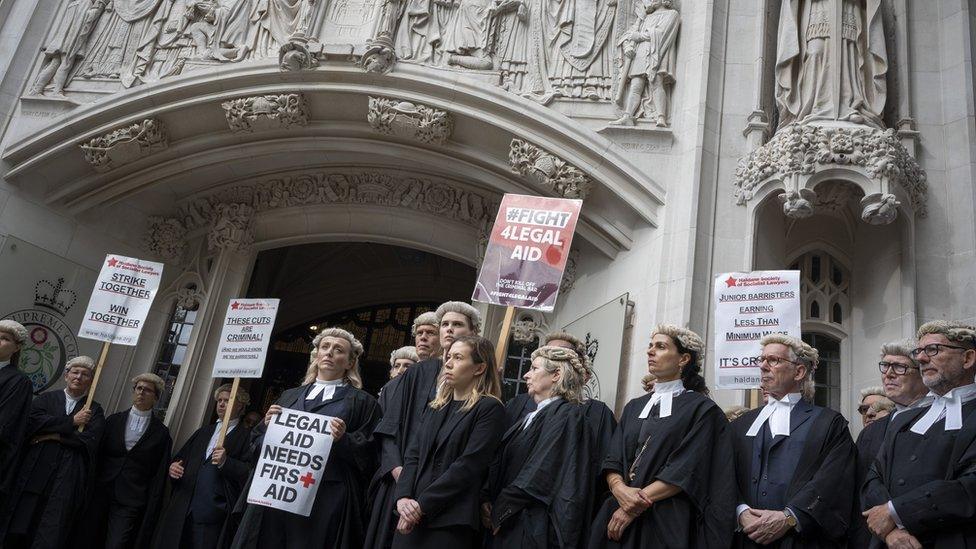
Barristers protesting outside the Supreme Court earlier this month over poor working conditions and low pay
The director of public prosecutions is bringing a High Court challenge against judges' refusal to detain defendants for longer ahead of trial amid record-high backlogs and legal strikes.
Delays have led judges to reject calls from prosecutors to extend the time some defendants are kept in jail.
This has led to some - even those on very serious charges - being bailed.
Brought by Crown Prosecution Service head Max Hill, the test case centres on cases in Bristol and Manchester.
Backlogs and the barristers' strike mean there is no certainty when trials will take place.
In recent weeks, judges in Bristol, Leicester, Oxford, Manchester and London have rejected calls from prosecutors to extend the time that defendants are kept behind bars.
Judges have been bailing defendants facing a range of allegations, including murder and sexual assault.
Barristers in England and Wales have been on strike in a dispute with the government over legal aid funding.
Judges say the unresolved strike - or failures by ministers to act on warnings - do not give them legal powers to keep people behind bars indefinitely.
Three of those decisions made in two separate criminal cases will be challenged in the High Court case.
The Criminal Bar Association (CBA) says the criminal justice system has been run down by years of underfunding and is seeking a 25% rise in legal aid fees for representing defendants who could not otherwise afford lawyers.
The government has offered a 15% rise from the end of September. This has been rejected by the CBA, which says it would not kick in soon enough or apply to existing cases.
Justice Secretary Brandon Lewis, who was only appointed to the role a few weeks ago, met with the CBA last week and said discussions had been "constructive".
His predecessor Dominic Raab previously refused to meet with the CBA during their action over pay.
CBA chairman Kirsty Brimelow told MPs earlier this month the group was "absolutely willing to negotiate". She said the CBA had been willing to do so all year but "there's been no alternative [to taking action] because we've had absolutely no negotiation".

SIZZLING SUCCESS OR FIZZLING OUT?: Will using an air fryer save you money?
THE CHAMPION THE WORLD IGNORED: How recognition came too late for star tennis and basketball player Ora Washington

Related topics
- Published5 September 2022
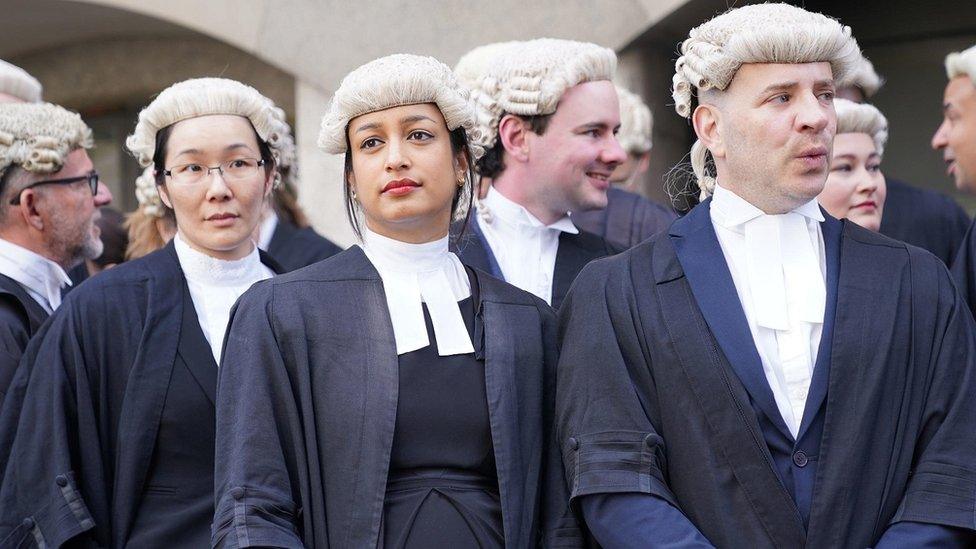
- Published22 August 2022
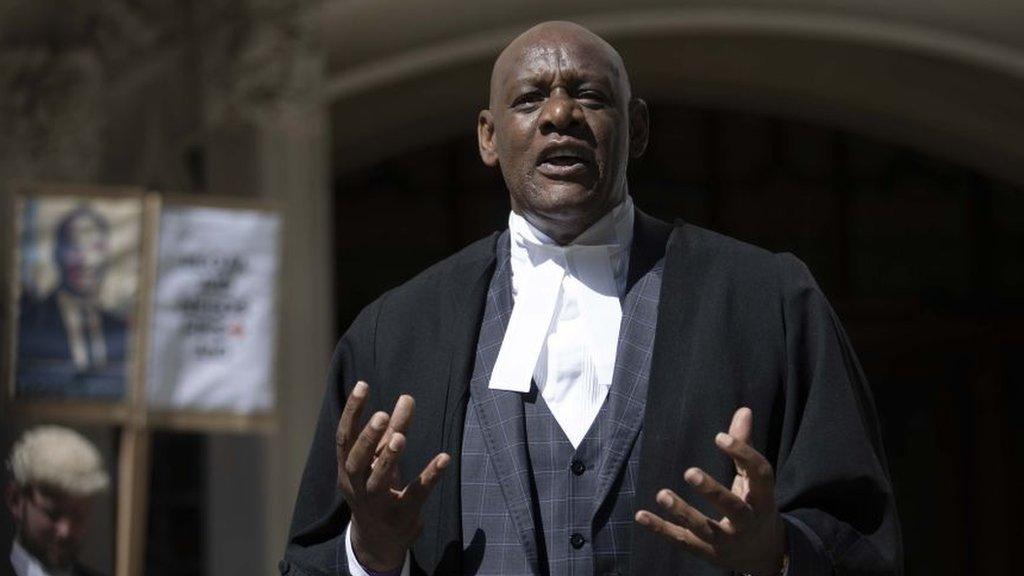
- Published6 September 2022
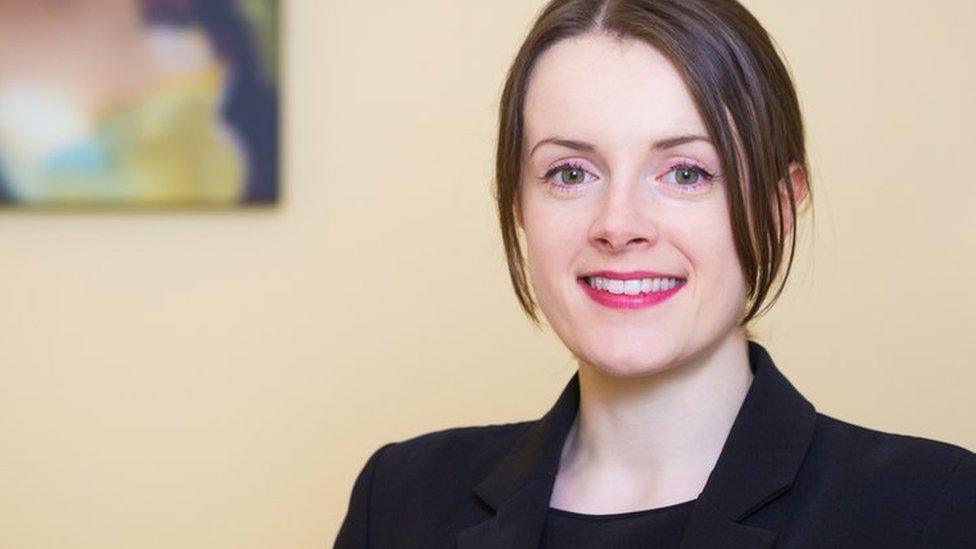
- Published5 September 2022
